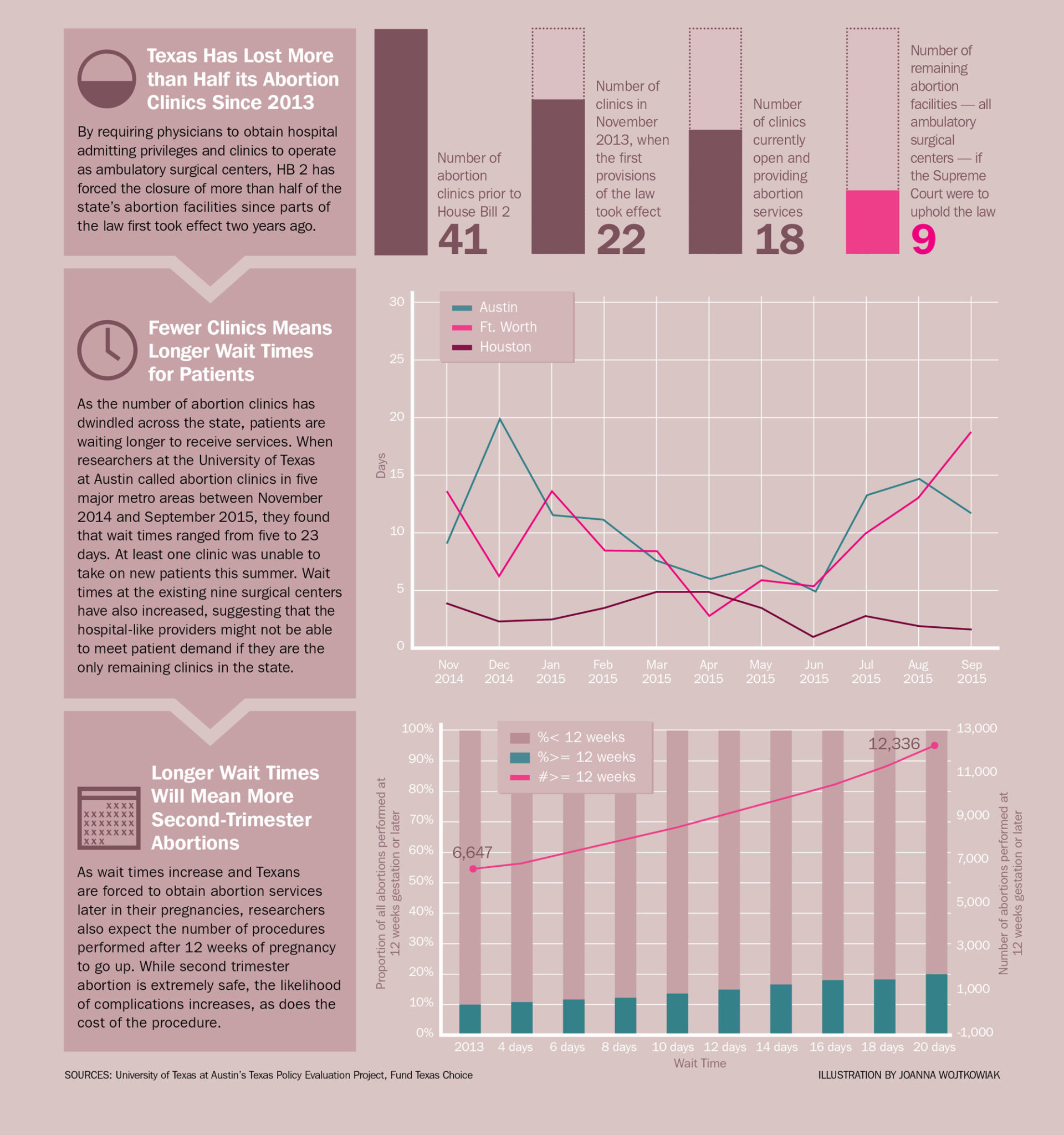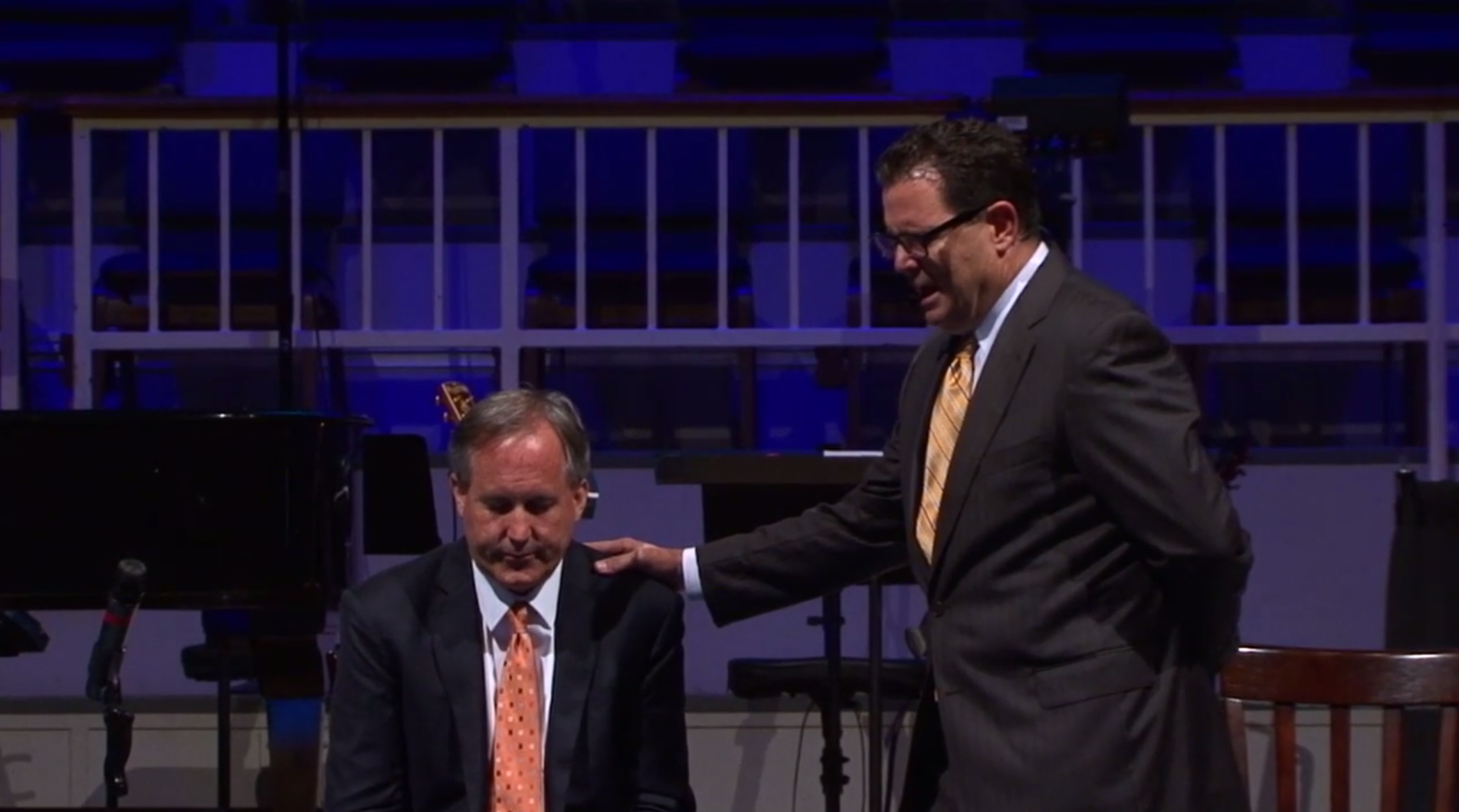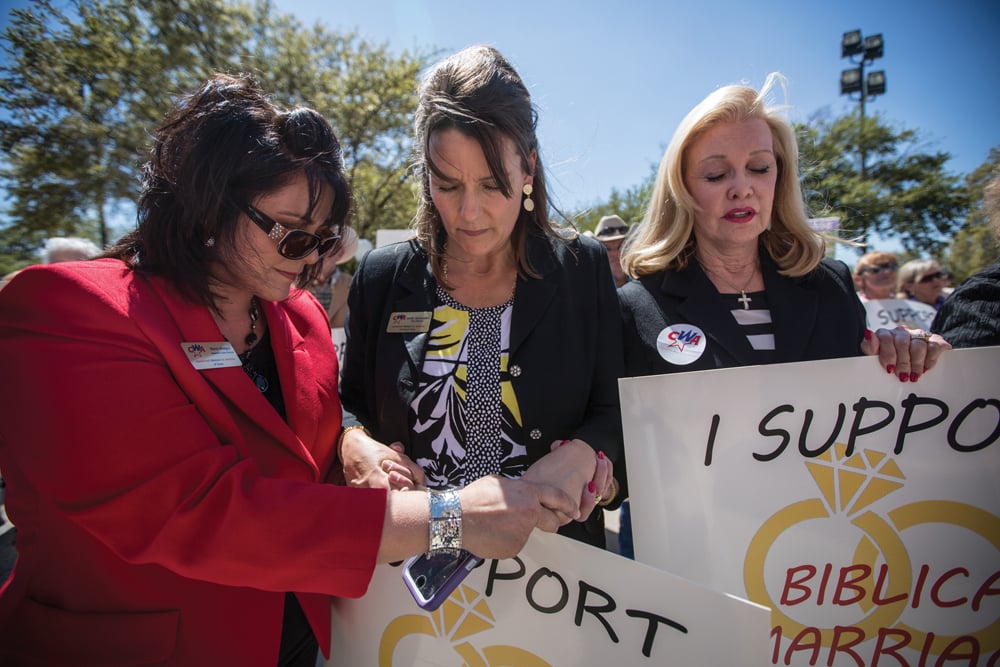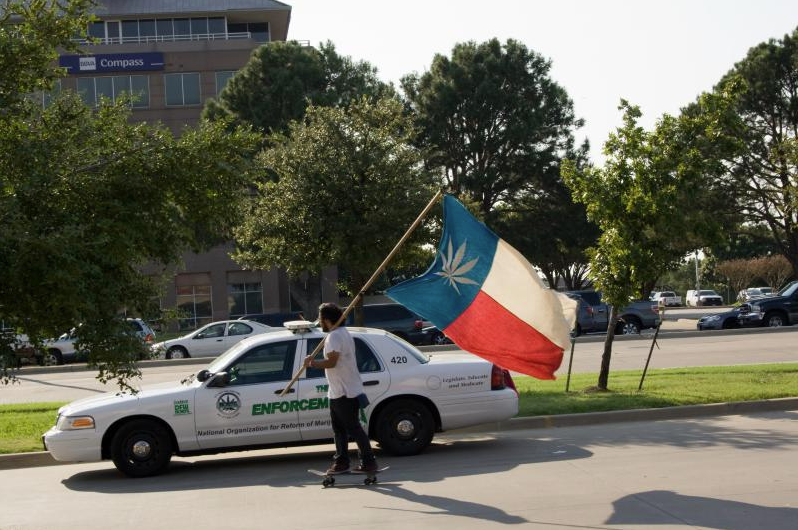
How Texas Became a New Front in Marijuana Legalization Fight

Above: DFW NORML hosts a cannabis car wash fundraiser in Arlington.
Shortly before 10 p.m. on a Wednesday in April, Tammy Castro was describing the heartbreaking story of her son’s losing battle against drug abuse. The crowded Capitol conference room, packed with marijuana-rights activists, fell silent.
Marijuana started her son on a downward spiral to his death, Castro said, holding back tears. “If you pass this bill, you are sentencing more youth to certain death.”
Castro was testifying against House Bill 2165, which would completely legalize adult use of marijuana in Texas. States like Colorado and Washington that have legalized recreational pot have created detailed structures for regulating the plant. Simpson’s approach was far more radical; he would strike any mention of marijuana from state law—no limits on the amount you could possess, no dispensaries, no state regulation.
The measure got further through the legislative process than many thought possible, progress that proponents say is a harbinger of some kind of legal pot in the not-so-distant future. With some Republicans reconsidering their opposition to marijuana, the Texas Legislature became an unexpected front in the fight to legalize it.
The bill’s author—tea party-backed, Christian conservative Rep. David Simpson (R-Longview)—and the other members of the Texas House Criminal Jurisprudence Committee soberly nodded as Castro finished her testimony.
Then Castro’s husband addressed the committee. His voice grew angry as he made eye contact with Simpson.
“I think, Mr. Simpson, that you’ve done a tremendous disservice in using God and Scripture to try to validate your point,” he said.
Simpson’s views on marijuana are grounded in his understanding of God’s intent. “I don’t believe that when God made marijuana he made a mistake government needs to fix,” Simpson told the Observer during a May interview in his Capitol office.
The Castros’ testimony, though, was powerful. Their point—marijuana is a gateway drug—has been a War on Drugs truism for generations.
Nevertheless, the committee put aside such fears and passed Simpson’s bill on a 5-2 vote. Two Republicans voted yes: Simpson and state Rep. Todd Hunter (R-Corpus Christi).
It was actually the second pot bill that had cleared the committee. Two days before, House Bill 507, which would make possession of less than 1 ounce of marijuana a civil offense, had passed on a 4-2 vote, making it the first marijuana decriminalization bill to ever advance beyond a committee in the Legislature.
A week after passing committee, Simpson’s bill missed a crucial legislative deadline and died in the House Calendars Committee, a key chokepoint for legislation that House leadership wants to kill off quietly. HB 507, from Rep. Joe Moody (D-El Paso), met the same fate. Their demise meant that most House members were spared taking a stance on marijuana reform and choosing between competing notions of liberty and law and order.
Still, the fact that a sweeping legalization bill made it anywhere impressed many Capitol observers and marijuana advocates.
“It surprised us,” said 31-year-old John Baucum, policy director for the nonprofit group Republicans Against Marijuana Prohibition (RAMP). “The bill went way further than anybody in the country has gone.”
Simpson’s Capitol office is chockablock with obligatory decor: photos of his family, a copy of the Texas Constitution, a painting of Sam Houston and a “Come and Take It” flag.
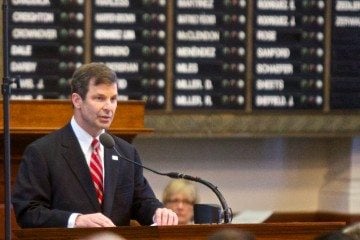
On an office tour in May, though, Simpson lingered in front of a lone decorative quirk: a framed photo of Winston Churchill.
Below the photo is a quote: “Never give in, never, never, never, never … never give in except to convictions of honor and good sense.”
At a time when many Texas Republicans pander to conspiracy-minded constituents (see: Jade Helm) and ideological pressure groups backed by “dark money” (see: Empower Texans), Simpson isn’t afraid to break with orthodoxy in surprising ways.
But Simpson is no liberal or even a moderate. His right-wing bonafides are as solid as they come.
The list of organizations that endorse Simpson reads like a right-wing honor roll: Texas Eagle Forum, Texans for Lawsuit Reform and Heritage Alliance, among others.
But neither does Simpson fit the stereotype of the tea party yokel. He grew up in the tony Dallas neighborhood of Highland Park, majored in philosophy at Vanderbilt University and tosses around quotes from French political theorists. When Simpson introduced HB 2165 at the committee hearing in April, though, he sounded more East Texas preacher than philosophy professor.
“[This bill] takes a limited government approach, a personal responsibility approach, individual liberty approach to dealing with drugs and drug abuse,” Simpson said.
Later, in his office, he said his position isn’t new. For years, he’s believed that marijuana should be legalized, but only started actively advocating for it when people in his district encouraged him to do so.
“Right now, you can’t legally use the plant responsibly to help people with PTSD, epilepsy, cancer or pain,” Simpson said. “We need to change that.”
HB 2165 wasn’t the only marijuana-related measure Simpson championed this session. In May, the House debated a bill to study treatments for PTSD. Simpson offered an amendment adding marijuana to a list of treatments to be studied. Only seven Republicans joined Simpson in voting for the amendment, though, and it was killed on a 80-54 vote.
Afterward, Simpson said the vote was a “window” into how his legalization bill would’ve fared had it reached the floor. He expressed frustration that one of his Republican colleagues who spoke against the PTSD amendment had privately indicated to him an open-mindedness on pot reform but feared the political consequences of saying so publicly.
“How can you reject your constituents’ beliefs—people who have been to MD Anderson and Cleveland Clinic and they’re receiving treatment for epilepsy and it’s not helping,” Simpson said. “Then they find a plant that’s helpful, a plant that God made, it’s stopped their seizures, and they’ve proven it works.”
But the political reality is this: Taking a softer stance on marijuana has historically been a political third rail in conservative Texas.
When asked about Simpson’s bill, Rep. Jeff Leach (R-Plano), a Republican who voted against HB 2165 in committee, demurred.
“Look, I love David [Simpson], but I’m not talking about that,” Leach said. “I’m not going to talk about it.”
If Leach’s reticence to talk about marijuana doesn’t send a strong message about the current political thinking in the state, consider comments made by Gov. Greg Abbott on the last day of the legislative session.
“I remain convinced that Texas should not legalize marijuana,” Abbott said, “nor should Texas open the door for conventional marijuana to be used for medicinal purposes.”
Conservative politicians have spent decades fear-mongering about the dangers of marijuana. Meanwhile, public opinion has evolved—a majority of Americans today supports legalization. Since 2012, Colorado, Washington, Alaska and Oregon have legalized recreational marijuana.
When it comes to changing attitudes about marijuana, Texas is more or less in line with the rest of the country. According to a 2013 Public Policy Poll, 58 percent of Texans “support making marijuana legal for adults and regulating it like alcohol.”
When it comes to changing attitudes about marijuana, Texas is more or less in line with the rest of the country.
“The War on Drugs has failed,” Simpson said. “Prohibition has failed.”
He continued, “What’s the best way to help the drunkard? It’s not to put them in prison; it’s to understand their problem. As long as they’re not harming someone else, you give them the gospel, take them to dinner, get to know them, be their friend and try to help them over overcome their addiction.”
The case for marijuana legalization in Texas has been made before—notably by musicians Willie Nelson and Kinky Friedman—but never quite like Simpson is making it.
“I try to legislate on a set of principles: ‘Protect life, liberty and property and then get out of the way,” he said. “Many times conservatives are not consistent.”
So why didn’t Simpson’s bill make it to the House floor for a vote? Hunter, who voted for the bill in the House Criminal Jurisprudence Committee, is also the chairman of the Calendars Committee.
The committee just didn’t have time to get it scheduled, Hunter said last week.
It’s true that many bills fall victim to legislative time constraints, and while Hunter might not be guilty of killing the bill, it didn’t seem to be a top priority.
He wanted the bill to get to the House floor, Hunter said, pointing to his “yes” vote in committee.
Moody’s HB 507, turning punishment of marijuana possession into a civil penalty, also died in the House Calendars Committee.
Of the more than 10 marijuana-reform bills filed this session only one made it through the legislative sausage grinder to Gov. Greg Abbott’s desk: Senate Bill 339 by Sen. Kevin Eltife (R-Tyler). The limited medical marijuana measure legalizes cannabidiol oils for certain epilepsy patients.
“It’s historic for the Legislature to acknowledge that cannabis is medicine,” Fazio said. “Unfortunately this bill is only for patients with intractable epilepsy and leaves a lot of patients behind.”
The situation doesn’t discourage Baucum though.
“We’ve gone farther than we ever have before in Texas,” he said. “Times are changing, even in the Republican Party. By 2017 it’s going to be a completely different conversation.”
